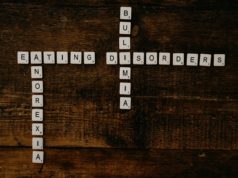In every battle, the strongest warrior who remains standing in the end always holds the greatest weapon. Over the struggle between life and death, it is the nurse’s pen obstinately saves the day. For crammed doctor’s orders, jammed patient’s procedures and ceaseless nurse’s notes — it is the “documentation” relentlessly finds a way out of the maze to have a worthy endorsement at the end of the shift. Nurses utilize writing through documentation. A nurse can never run a shift without a single pen in his/her pocket. Indeed, all nurses can write… but not all who can write can become a writer.
Like in any other profession, it is imperative that nurses have the ability to write. Writing is very vital in the medical profession as it is the best way of “in-black and white” communication. Nevertheless, for writers — writing is an act of self-expression. It is a way to convey deafening words in silence. The struggle with words and phrases is like the search to hear a muttered sound. For writers, writing is a voice in silence.
The notion that “a writer needs paper and pen or computer in order to write”, is an understatement. Writing is more than the letters and symbols we transcribe over the paper. The basic element of writing depends on its meaning and message, no matter what the language is. When people heard about writing, we adamantly contemplate writing with principles of grammar, spelling, and punctuation marks as well as the general rule of forms such as spacing, indent, and margins etc. — as if they are tantamount to each other. In fact, it is only a part of writing and this is referred as the technical aspect. Writing does not solely hinge on the principles of forms and grammar. Moreover, the components of writing include technical, creativity, and ethical aspects.
The technical aspect of writing is a skill to be learned and will be nourished by trainings. While some people like to write more than the others, they are not necessarily natural writers, there are no natural or born writers. Writing, like golf or tennis, is a skill and is developed through practice. There are no short cuts, no magic formulas and definitely no mysterious injections one can get to make him/her a writer. Writers become better by writing.
Talent in writing reveals your creativity and attitude as a writer. Writing is a passion for art in expressing your thoughts, ideas, judgments etc. It is how your readers digest what you composed. It is how you make your readers feel what you feel. It is in your writing artistic style how does the reader absorb and embrace the message and meanings you wanted to convey. Like an avid movie, goer idolizes an actor/actress in a movie and assuming their roles as if you are in the film or fantasizing as if you are in your hero’s shoes being carried away by the scene. In creativity, you are putting your readers inside to what they read or a part of your piece. Creativity stimulates the involvement of the reader to what you wrote. It allows the writer to string sentences and moods in a logical way.
Furthermore, your attitude as a writer plays an essential role in your creativity and passion. It is not easy to become a wordsmith – writing requires planning, patience, and a commitment. It also requires (1) an interest in the subject being written about, (2) knowledge of the subject, and (3) a willingness to devote some time to the writing task.
“Pen is mightier than the sword”, an old saying coined by Edward Bulwer-Lytton, an English author, in 1839 — means a small pen holds a great power to conquer the world. Hence, writers should be very careful with every single word with every single detail that he/she will use in his/her writing. Writing materials should be proofread and error-free. Ethical writing should (1) not be manipulative, (2) never mislead, (3) avoid stereotyping, (4) non-judgmental, (5) non-discriminating, and (6) certainly, no promulgation of any subliminal messages. Ethical writing should be for the welfare of humanity whom should gain positively from reading.
From the famous tagline of the motion picture Spiderman, “With great power, comes great responsibility”. The great power of a writer’s pen is twinned with great responsibility. Remember that writing is the result of sweat, determination, and need. An ethical writer should respect others writing by giving full credit on the source and use of a proper citation. Intellectual theft or plagiarism in any forms, either intent or unconscious (cryptomnesia) are misdemeanors of intellectual property rights.
Awareness and application of these components for good writing will move the writer from “writer’s block” or from “procrastination” into the process of writing. There is nothing magical or mysterious about writing. It is a work. There will be good days, and there will be bad days, but the work still needs to be done because there are lots of minds searching for wisdom.







